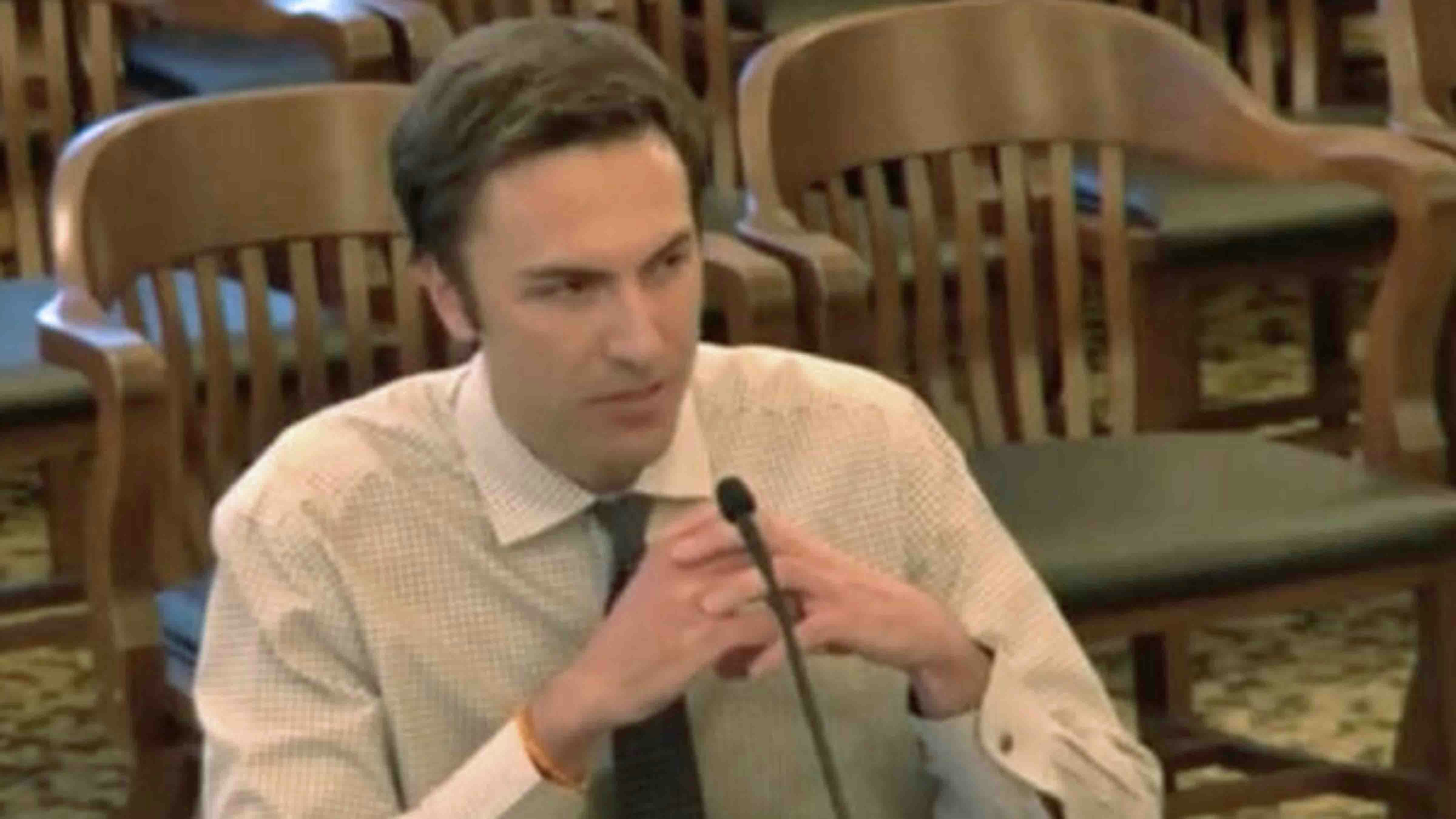Chinese-connected corporations have allegedly acquired land next to Sean Murphy’s bitcoin mining operation in the Campstool Business Park outside Cheyenne, which has killed an agreement his company had with the state of Wyoming.
Murphy, who represents Bison Blockchain, told the Legislature’s Management Audit Committee on Wednesday that a conglomerate of about eight “corporate entities” run by Chinese nationals with varying levels of connections to companies in China — including the largest manufacturer of bitcoin miners in the world — have pushed his Wyoming-based company out.
“It’s a diverse, complicated flow from Chinese nationals operating companies,” Murphy said in warning lawmakers about the potential for Chinese companies to exploit Wyoming’s business and land-use laws.
He said although some of the companies that buried Bison Blockchain are based in Wyoming, they are all connected to China.
“We came to learn that they were Chinese,” he said. “There’s been a Chinese takeover in Wyoming.”
What Murphy didn’t tell the committee is that his business had a prior relationship with at least some of these companies.
In May, Bison Blockchain filed a $22 million lawsuit in Wyoming federal court against five companies based in either Delaware or the Cayman Islands related to its bitcoin mines in Cheyenne. The lawsuit accuses the companies of breach of contract, covenants of good faith and fair dealing, enterprise liability and intentional interference with contractual relations.
What Are They Doing?
Blockchain mining is the process of adding transaction records to the bitcoin blockchain.
In June 2022, Black Hills Energy entered into a five-year service agreement with Bison Blockchain involving up to 45 megawatts of power, with an option to expand to as much as 75 megawatts at the North Range Business Park in Cheyenne.
Black Hills said at the time that the facility "will represent one of the largest bitcoin mining operations in the region," according to a press release from the utility.
“We were the largest bitcoin miners in the state until we weren't,” Murphy told the committee.
In October 2022, Bison Blockchain broke ground on the future site of its MineOne Data Center at North Range. It is now suing MineOne as one of the parties in the lawsuit.
How It Works
Power is an incredibly important valuable asset in bitcoin mining and the data centers that typically house these operations, as they need a significant amount of electricity to run their operations.
Bison Blockchain leased state land next to a large Black Hills Energy substation to run its operations off 30-45 megawatts of power. To put that number in perspective, Murphy said the entire city of Cheyenne runs on about 100-120 megawatts.
Their business model was to generate revenue for the state on a per-miner basis, the process of creating valid blocks that add transaction records to Bitcoin's public ledger. For each Bitcoin miner, the company would pay the state $1 per month.
Bison Blockchain was paying the state $5,000 a year on its 10-year lease.
Murphy said a large mine like Bison could result in 10,000-15,000 bitcoin miners, representing as much as $1 million to $2 million revenue for the state over the course of its 10-year lease.
“The more bitcoin that we mined, the more money the state made,” he said. “It was a great win-win-win.”
Murphy said the other companies acquired private land next to the Black Hills substation and have since taken over Bison Blockchain’s service agreement with Black Hills. Now, Murphy said the companies will be using Black Hills power to mine their own bitcoin, all of the proceeds of which he believes will eventually go to China.
“What we trying to do was generate more revenue for the state on this state land, but that’s been wiped out,” he said.
Murphy said Bison Blockchain will continue to honor its lease agreement with the state and will compete with the new competition.
“We’re going to compete with the Chinese,” he said. “We’re not going to roll over.”
But he implored the committee to help shore up state regulations, saying the situation is “not good” and needs to be addressed.
During the 2023 legislative session, two bills were drafted that prohibited Chinese ownership of land in Wyoming. Both died before making significant traction.
How Committed?
State Sen. Tara Nethercott, R-Cheyenne, questioned Murphy if he would commit to not selling his company out to a high bidder some day, which could be a company connected to China.
Murphy didn’t deny that his company is in business to make money and that they wouldn’t pass up an ideal situation to sell someday. But he also said his company has “learned our lesson” from working with Chinese companies.
He said Bison’s original 10-year lease agreement with the state could have led to more revenue through additional state land leases in the future, where even bitcoin could have gone to the state’s coffers.
“That is an asset I believe the state should look at acquiring,” he said.
Currently, Murphy said, the U.S. government only takes in bitcoin by seizure.
Leo Wolfson can be reached at leo@cowboystatedaily.com.





